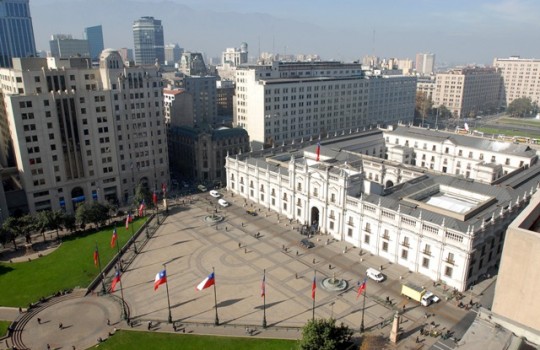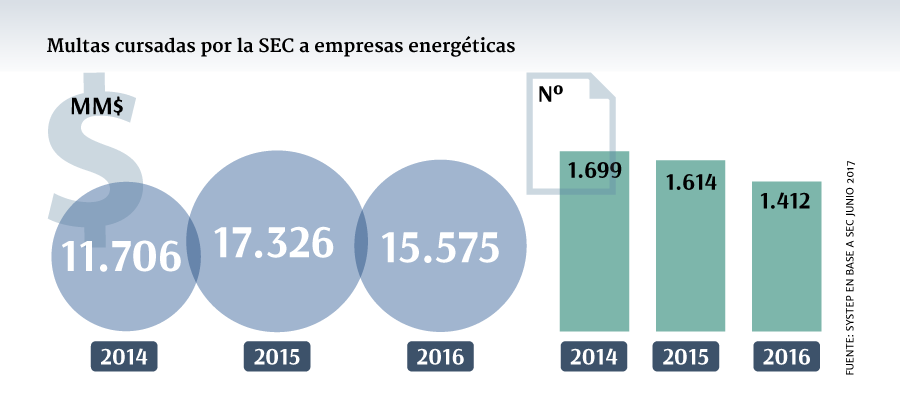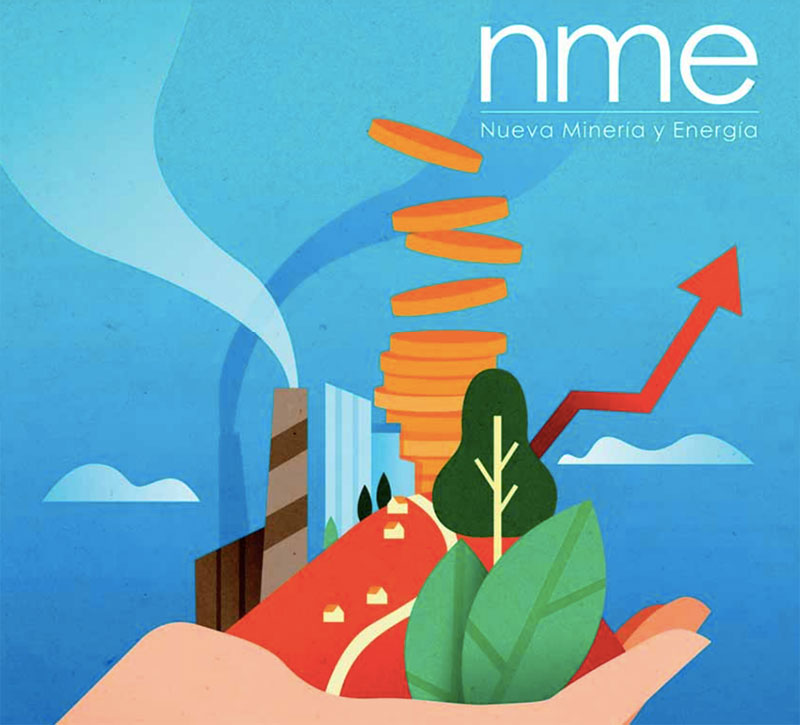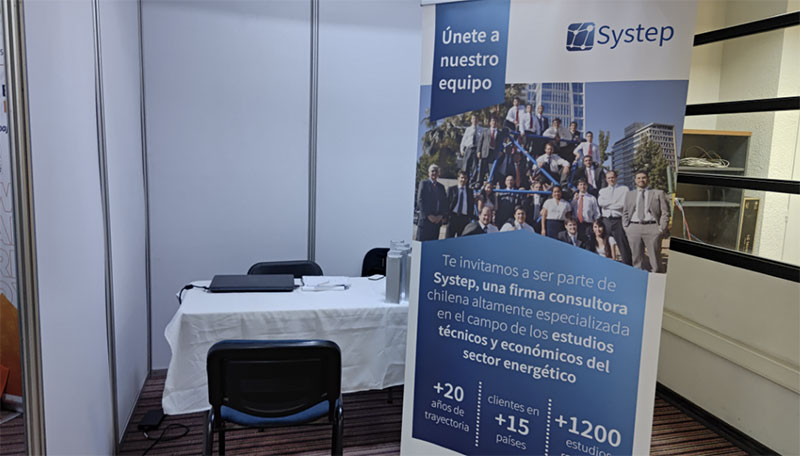
The Ministry of the Interior required the company to prepare a contingency plan to be implemented within three weeks.
La Moneda hits Enel’s table and firm will increase maintenance expenses by 30%.
Not since the controversy over the capital increase of the now defunct Enersis in 2012 has Enel attracted so much attention at a general level.
This time it was due to the slow restoration of service by Enel Distribución Chile after the snowfall of the weekend, which beyond the initiation of sanctioning processes by the authority and manifestations of rejection in social networks -including by the businessman Andrónico Luksic and the Minister of Finance, Rodrigo Valdés-, even led La Moneda to hit the table to the firm controlled by the Italian state-owned company.
It was the Undersecretary of the Interior, Mahmud Aleuy, who in his capacity as Vice President of the Republic, summoned the top executives of the concessionaire and its parent company Enel Chile to demand a contingency plan for this type of extraordinary emergencies, which they will have to implement within a period of three weeks.
“The government believes that a company that provides basic supplies to the people has the responsibility and obligation to face the events that occur adequately and clearly, in this case it was not so (…) Faced with the problems that affect citizens as a result of climate change, private companies that provide these services have the responsibility and obligation to face them adequately,” said the ombudsman.
He added that the work with the distributor will begin this Monday, when they will compare the information that the company and the government have, since, he said, there are discrepancies regarding the number of brigades that were declared to have been deployed, based on the denunciation made by the electric company’s union.
Subsequently, a first contingency plan will be prepared within a week, which will be fine-tuned over time, given the complexity of such a mechanism. The affected municipalities will participate in this design and, eventually, CGE Distribución, the other firm that supplies the Metropolitan Region, which also required several days to return to normal supply levels and with which Aleuy also met yesterday, will be included.
Thus, fifteen days later, the electricity company should have implemented this package of initiatives.
When asked about the mechanism by which this plan will be implemented, considering that electricity distribution is a regulated service, the Vice-President of the Republic in office said that “whatever has to do with bills, with official documents or additional regulations, the Ministry of Energy will see it” and added that “it is up to me to solve a problem. The Ministry of the Interior is in charge of emergencies in Chile and that is why we have to see how to ensure that in a future event the problems that this company has had now do not occur”.
Increase in investment
A few hours earlier, the general manager of Enel Chile, Nicola Cotugno, took stock of the magnitude of the situation faced by the distribution subsidiary and announced measures for a maximum bonus of US$ 25 thousand per night for customers who were without supply from 8 p.m. on Sunday, July 16, at an estimated cost of between US$ 4 and US$ 5 million.
On the occasion, the executive announced that the global investment plan, which Enel traditionally reports in November, will be revised upwards in terms of maintenance investment for the distribution systems in Chile.
The increase, he said, will be 30% over the amount executed in the last three years, which reached US$ 360 million.
In this way, the power company would allocate around US$ 468 million, emphasizing, for example, 30% of its medium and low voltage networks that currently have no reinforcement, which represents the weakest point of its infrastructure.
He specified that of the 15,000 kilometers of low voltage and 20,000 kilometers of medium voltage networks currently operating in the 33 municipalities of the region covered by its concession area, 50% have been reinforced in recent years, while the remaining 20% are underground.
He stated that although the most effective way is to put the lines underground, this is a very long-term task and involves significant inconvenience to the city’s operations. For this reason, and before Aleuy instructed the working group, Cotugno commented that they would establish an instance with the municipalities to analyze in each case the most appropriate actions, which could include vegetation management, relocation of networks or undergrounding.
Aleuy in a dive against the Sofofa
At the same time that the Vice-President of the Republic was receiving Enel executives in La Moneda, Sofofa -the union to which the electricity company belongs- issued a statement in which it pointed out the need to discuss the levels of security and back-up for this type of basic services and the costs associated with it, when discussing the tariff regulation of this sector. “Our conviction is that we are at a time where it is necessary to raise that standard,” the entity said.
As a result, at the end of the meeting with the electricity company and without any consultation, Mahmud Aleuy said emphatically that “the government is not going to accept insinuations that the cost of dealing with the climate problems that occur should be passed on to the tariffs. Companies, and especially business sectors that regularly talk about productivity and growth, have the responsibility to ensure that their associates act correctly so that these goals are met”.
Rebolledo’s questioned role in the contingency
Yesterday, for the second time in less than two months, the Minister of Energy, Andrés Rebolledo, announced charges against the two companies serving the Metropolitan Region, Enel Distribución and CGE Distribución, for their actions following the weekend snowfall.
However, according to industry experts, the role of the Secretary of State in this contingency could have been different. For example, the coincidence between yesterday’s meeting between the Undersecretary of the Interior, Mahmud Aleuy, and executives of the two questioned firms, and the announcement of the sanctioning processes, caught the attention of the public.
This, considering that the meeting at the government palace was attended by the deputy director of the National Emergency Office, Víctor Orellana, as well as representatives of the SEC and the ministry itself.
Regarding Rebolledo’s statements in the last few days regarding the need to address these situations through the revision of the Distribution Law -a process which, as announced, will be left to be processed by the next government-, industry insiders comment that several of the situations that are condemned today could be addressed immediately by means of decrees or resolutions.
It transpired that, although the possibility of snowfall was already known at the beginning of last week, the SEC official notice instructing the concessionaires to take actions in the face of this phenomenon was only dispatched on Friday afternoon and without specifying specific measures. In addition to this, according to the industry, the companies’ inspection of work carried out prior to the winter season, such as tree pruning, was not supervised by this entity.
As a result of all this, some deputies went against the minister. Claudio Arriagada (DC) said that “I have asked a group of lawyers to draft the grounds for filing a Constitutional Accusation against the minister for his actions in this situation”.
Another factor addressed by the consulting firm Systep, linked to the academic Hugh Rudnik, in its recent monthly report, is the application of fines for non-compliance with quality standards, which could be an incentive to make investments in this area.
Such sanctions may range from a written warning to a fine of ten thousand UTAs ($ 5,608 million). For example, says Systep, in 2016 Chilectra (now Enel Distribución) received a penalty of 17,729 UTM ($ 815 million) and CGE one of 20,000 UTM ($ 920 million), for exceeding the amount of time accumulated over service interruptions.
In cumulative terms, although there is an increase in penalties to energy companies between 2014 and 2016, the first of these years there were 1,699 fines for $ 11,706 million, which gives an average value of $ 6.9 million per fine, while in 2015 and 2016 the averages are $ 10.7 and $ 11 million per fine, respectively.






